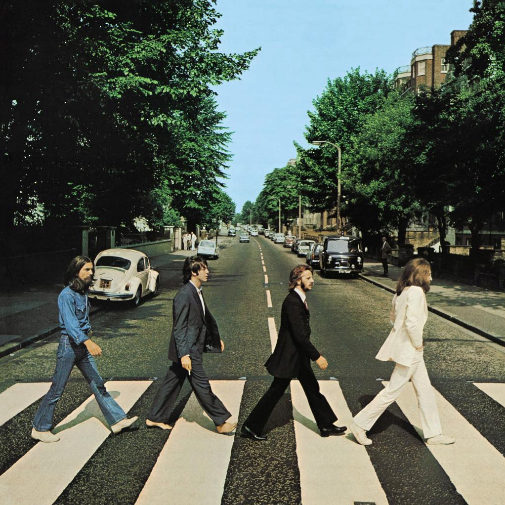Fifty years after Iain Macmillan took the iconic photograph in a zebra crossing illustrating the cover of Abbey Road , the last album recorded by The Beatles , it seems impossible that there is still some mystery to discover around him; nevertheless, the last one of them has been solved by a compostelano.
Alejandro Espiño , PhD in Art History from the University of Santiago de Compostela (USC), musician and "beatlemaníaco" from a young age, says that he found during the investigation for his thesis that Mean Mr. Mustard , a song from face B of Abbey Road , was based on a story that John Lennon read on June 7, 1967 in the Daily Mirror .
The song makes a clear reference to John Alexander Mustard , a 65-year-old Scot who had made headlines because a court had granted his wife a divorce because he was too stingy ("mean"), to the point that he shaved with the light off, a fact that is reflected both in the text of the news and in the letter of Lennon.
Everything indicates that John Lennon wrote the song shortly after that date , but its publication was postponed until the launch of Abbey Road on September 26, 1969, the last album recorded together by the four of Liverpool.
But how did Espiño discover this fact? Everything happened back in 2014, when he was documenting for his thesis - barely defended a month ago - Beat, pop and rock in Santiago de Compostela (1954-1978) , for which he sailed through the entire local press of the Galician capital of that period.
In addition to the documentation for the thesis itself, Espiño also looked at some news that caught his attention, among which he found Maximum Stingy , the title with which a note issued by the Efe Agency in London was reproduced, reproduced, among others, by The Galician Post on June 8, 1967.
This great fan of The Beatles did not go unnoticed that the protagonist of that news was a Mr. Mustard, which immediately reminded him of the Abbey Road song; To his surprise, the story described there coincided almost completely with the one Lennon told in Mean Mr. Mustard .
"Today I read the news, boy"
Espiño knew about Lennon's habit of composing based on news and even events that happened to him: A Day In The Life , the song that closes the classic Sgt. Pepper's Lonely Hearts Club Band , starts with an "I read the news, oh boy "(" I read the news today, boy ") and continues with two of them.
The first is the death in a traffic accident of billionaire Tara Browne , which Lennon himself had read two days earlier in the Daily Mail ; later, the song joins fragments of other news from that same newspaper and that same day, such as the 4,000 potholes on the Blackburn road that appear at the end of the song.
With this information, it was not difficult for him to locate the original news in the Daily Mirror ; later, he also found the Telefe Agency teletype reproduced in Diario de Burgos and Diario de Soria , with the same text but with a different headline: "Tacaño, tacañísimo" .
And that's how a doctor in Art History at the USC discovered, immersed in the newspaper library of "El Correo Gallego", now housed in the City of Culture of Santiago de Compostela, the origin of a song that, combining the talent of Lennon and Mr. Mustard's stingy has survived to this day.
But the story does not end there: despite having discovered this information in 2014, Espiño continued working on his thesis until the middle of this year, after which he contacted Mark Lewisohn , an English historian expert in The Beatles and responsible for coordinate the librettos that accompany the reissues of the historical albums.
To Espiño's surprise, Lewisohn - a person whom he had read since he was young and who seemed unattainable - replied immediately to his message and informed him that this information about the origin was to be included in the libretto of the LP reissued for the fiftieth anniversary from Abbey Road , which will include extras, discards and fake shots and will be published in September.
Thus, Santiago has decided that, before the launch of the LP, he will publish his research around this song in Spanish, Galician and English, information that, surely, will be eagerly received by fans of The Beatles , eager to know every new little detail about them that comes to light.
According to the criteria of The Trust Project
Know more- culture
- music
MusicSónar saves the furniture at the last minute
MusicLorena Álvarez: "The indie label makes me a very bad host"
The final interviewFran Perea: "The actors have a natural tendency to do anything, pirouettes, to connect with the public"

